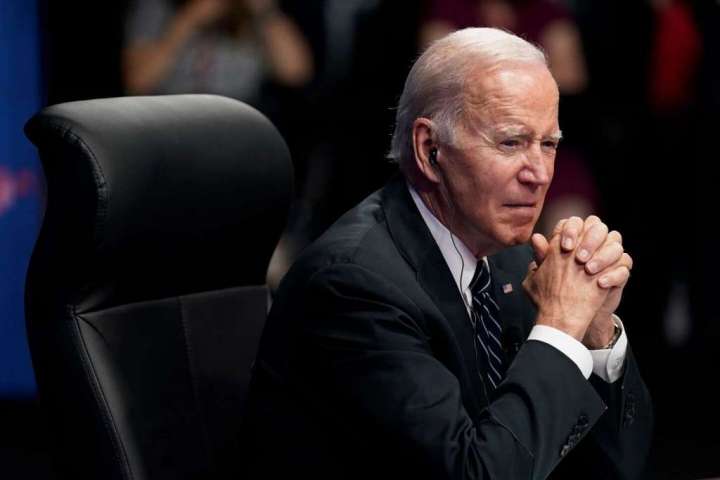President Biden’s declaration on Monday that the United States would defend Taiwan if China attacks is just the latest sign he is shifting U.S. policy toward confronting and containing the Communist nation. That’s the right approach, and he needs to rearm faster and maintain U.S. tariffs on Chinese goods to make it stick.
Biden is right to say the U.S. should defend Taiwan

The United States has long practiced “strategic ambiguity” with respect to Chinese designs on Taiwan. Foreign policy strategists have believed this would effectively deter an invasion while maintaining relations with Beijing. So long as China acted in a positive manner, this was a defensible strategy.
But Chinese President Xi Jinping’s increasingly aggressive behavior makes the policy untenable. Taiwan, like Ukraine in Europe, is a flash point in a contest between the United States and an autocratic power. If the United States chose not to aid Ukraine in its time of need, our European allies — who recognized the threat a Russian-conquered Ukraine would pose to their security — would question our commitment to them. So it is with Taiwan; if the United States won’t defend a longtime, democratic friend, other allies in Asia would call our commitment into question.
Biden’s public commitment is something Japan, our most important ally in the northern Pacific region, has wanted to hear. Former prime minister Shinzo Abe specifically called for this immediately following Russia’s invasion of Ukraine. Former Japanese deputy prime minister Taro Aso also said Japan would consider a Chinese invasion of Taiwan a direct threat. It is surely no coincidence that Biden made his statement in Tokyo at a joint news conference with Japanese Prime Minister Fumio Kishida. This reassures Japan that its own military buildup to counter China’s threat will be part of a concerted, U.S.-led effort.
Follow Henry Olsen‘s opinions
FollowBuilding such an effort has been a consistent goal for Biden since his inauguration. His trip to Asia will continue this activity, including a proposal to build a 12-nation trade pact that excludes China. The new framework falls short of a full Pacific trade deal, but it does further commit the United States to economic engagement with nations such as India, Japan and South Korea, which would serve as essential alternatives for Western investment. That would make it easier for the United States and other Western firms looking to decouple from China to follow through.
But this initiative cannot succeed without more from Biden. The nascent military network he is building needs U.S. assets to ensure regional supremacy, and those assets cannot be committed without a faster modernization and rearmament of the U.S. military. All of our allies are quickly increasing their military capacities, yet Biden has only proposed a 4 percent increase in spending this year. That doesn’t even match the inflation rate, much less provide for the new planes, ships and other equipment our aging military sorely needs. Biden’s words on Taiwan will prove hollow if his deeds don’t match them.
The president’s effort to create a soft landing space for Western firms leaving China will also founder if he lifts the tariffs that the United States currently levies on Chinese goods. These tariffs send a signal to U.S. firms that investments in China have social costs. And it tells them to find another source of the raw materials or goods they purchase. The more U.S. firms do that, the less American consumers underwrite China’s economy. That, in turn, reduces its growth rate, forcing it to choose between its military and domestic needs. Cutting back on either will weaken the Communist government; that’s a good thing for the United States and its democratic allies.
Some economists argue that removing the tariffs will reduce inflationary pressures (though most of them supported removing tariffs before inflation emerged). In reality, inflation — though a serious economic problem — is largely unrelated to tariffs. Ideological devotion to free-trade fundamentalism is what is driving the anti-tariff effort, not concerns about rising prices.
Confronting China’s rise is the single most important foreign policy challenge facing the United States. It makes no sense to confront China militarily while bolstering it economically. Should China decide to wage war with the United States today, it would be doing so with modern weaponry purchased with U.S. money and often built with U.S.-designed technology. No president would want to face an American public under such circumstances.
Biden has surprised many of his conservative critics with his harsher-than-expected policy toward China. But in for a dime, in for a dollar. Biden should ratchet up military and economic pressure on Beijing and fully abandon the failed approach of the past.






